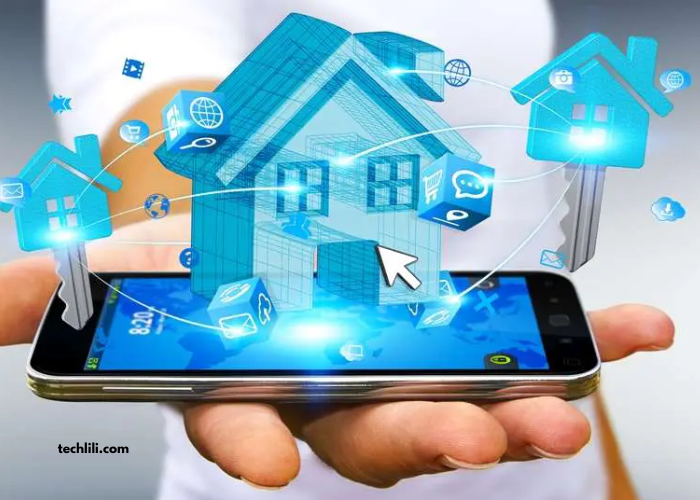Smart Home Technology: Simplifying Your Daily Life

In today’s fast-paced world, convenience, efficiency, and automation are at the forefront of technological advancements. Smart home technology, once a luxury of the future, has become an essential part of modern living. This transformative technology is revolutionizing the way we live, interact with our homes, and manage our daily routines. By automating everyday tasks, enhancing security, and optimizing energy consumption, smart homes are simplifying life in ways we never imagined before.
What is Smart Home Technology?
Smart home technology refers to the integration of internet-connected devices and systems that enable homeowners to control various aspects of their living spaces remotely or through automation. These devices communicate with each other through the Internet of Things (IoT), allowing them to work in harmony to improve comfort, safety, and convenience.
From controlling your thermostat, lighting, and security system to managing appliances, entertainment, and even health devices, smart home technology offers an unprecedented level of control over your environment.
How Does Smart Home Technology Work?
The core of a smart home lies in the seamless integration of devices and systems. These devices are equipped with sensors, Wi-Fi connectivity, and, in some cases, artificial intelligence (AI), enabling them to respond to commands, detect environmental changes, and even learn from your habits.
- Smart Hubs: A central control system that acts as the brain of the smart home. It allows communication between all connected devices.
- Voice Assistants: Virtual assistants like Amazon Alexa, Google Assistant, and Apple Siri play a key role in smart homes. They allow users to control various devices using voice commands.
- Smart Devices: These include thermostats, lights, locks, cameras, speakers, and kitchen appliances, all of which can be controlled remotely or automated.
Key Benefits of Smart Home Technology
Smart home technology offers a range of advantages that can make daily life easier, more efficient, and more enjoyable. Some of the key benefits include:
1. Enhanced Convenience and Comfort
With smart home technology, managing your daily activities has never been easier. Imagine adjusting your home’s temperature or lighting without lifting a finger. You can control these systems remotely via a smartphone app or even set schedules to automate them based on your preferences.
For instance, you can program your smart thermostat to lower the temperature when you’re away and adjust it just before you return home. Similarly, you can set your lights to turn on when you enter a room or create a cozy ambiance for movie nights.
Smart Appliances
Smart home technology extends to kitchen appliances, such as refrigerators, ovens, and coffee makers, making cooking and meal preparation much more convenient. You can preheat the oven remotely, set the coffee maker to brew at a specific time, or receive alerts when your groceries are running low.
2. Increased Energy Efficiency
One of the most significant advantages of smart home technology is its ability to optimize energy use, helping homeowners reduce utility bills and minimize their environmental impact. Smart thermostats, for example, learn your temperature preferences and adjust accordingly, ensuring that you are not wasting energy when you’re not at home.
Automated Energy Monitoring
Smart meters and energy monitoring systems help track your energy consumption in real time. These devices provide insights into which appliances use the most energy, allowing you to make more informed decisions about your energy usage. Smart plugs and power strips can also be used to turn off appliances when not in use, preventing standby power consumption.
3. Improved Security and Safety
Smart home technology can greatly enhance your home’s security, offering real-time monitoring, remote access, and instant alerts. With smart cameras, doorbell cameras, and motion sensors, you can keep an eye on your property, even when you are miles away.
Remote Monitoring
Smart security systems enable homeowners to monitor their homes from anywhere using their smartphones. Real-time video feeds, motion detection, and automatic alerts can help prevent intrusions and ensure the safety of your family and property.
Smart Locks and Doorbells
Smart locks allow you to lock and unlock doors remotely, making it easier to grant access to trusted visitors without needing to be physically present. Video doorbells with two-way audio let you communicate with visitors before deciding to open the door, adding an extra layer of security.
4. Voice Control and Automation
Voice assistants such as Amazon Alexa, Google Assistant, and Apple Siri allow users to control a wide variety of smart devices with simple voice commands. Whether you need to adjust the temperature, turn off the lights, or play music, voice commands make it effortless to interact with your home.
Customizable Automation
Automation is another key feature of smart homes. You can set up custom routines that trigger actions based on specific conditions, such as time of day, occupancy, or environmental factors. For instance, you could program your home to turn off all lights and appliances when you leave for work, or to activate the security system at night.
5. Enhanced Entertainment Experience
Smart home technology also enhances your entertainment options. With smart speakers, smart TVs, and home theater systems, you can easily control your media with voice commands or mobile apps.
Multi-Room Audio Systems
Smart speakers, like Amazon Echo or Google Nest Audio, can be set up in different rooms of your home to create a multi-room audio experience. You can play music or podcasts in every room, or sync the speakers to play the same content throughout your home, ensuring an immersive experience wherever you are.
Streaming and Home Theater
Smart TVs and streaming devices like Roku or Apple TV allow you to access content from various platforms, such as Netflix, Hulu, and Disney+, directly from your television. You can control the TV using voice commands or even link it to other smart devices to create an integrated home theater experience.
6. Health and Wellness Integration
Smart home devices can also contribute to your health and wellness, making it easier to monitor and manage your well-being. Smart thermostats can help maintain a comfortable temperature, while air purifiers ensure clean air quality.
Sleep Monitoring
Smart beds and sleep trackers can monitor your sleep patterns and provide insights into how to improve your sleep quality. These devices can adjust your mattress or bedding to provide optimal comfort throughout the night, helping you wake up feeling refreshed.
Fitness Integration
Smart fitness equipment, such as smart scales, connected workout machines, and wearables like fitness trackers, help you stay on top of your fitness goals. Many of these devices sync with other smart home systems, enabling a holistic approach to health and wellness.
The Future of Smart Home Technology
The future of smart home technology looks promising, with continuous advancements in artificial intelligence, machine learning, and the Internet of Things (IoT). As these technologies evolve, smart homes will become even more intuitive and capable of anticipating your needs.
AI and Machine Learning
Artificial intelligence (AI) and machine learning are expected to play an increasingly vital role in the development of smart homes. These technologies enable devices to learn from your habits and preferences, providing a highly personalized experience.
For example, a smart home might anticipate your daily routine, adjusting your thermostat, lighting, and security system accordingly without you needing to program it manually. Similarly, AI-powered voice assistants will become more intelligent, understanding context and responding more naturally to commands.
Enhanced Connectivity and Interoperability
As smart home ecosystems grow, the need for seamless integration between devices from different manufacturers will become more critical. The development of universal standards and enhanced connectivity will enable a broader range of devices to work together effortlessly, ensuring that all elements of a smart home are compatible and easily controlled.
Sustainability and Green Living
The integration of sustainable and eco-friendly technologies is another exciting development in the smart home industry. From energy-efficient appliances to solar-powered devices and water-saving systems, smart homes will continue to evolve toward more sustainable living.
The Internet of Things (IoT) Expansion
The IoT is already a major driver of smart home technology, and its influence will only grow in the coming years. As more devices become connected to the internet, the ability to automate and monitor virtually every aspect of your home will continue to expand.
Conclusion: The Smart Home Revolution
Smart home technology is transforming the way we live, offering a level of convenience, comfort, security, and energy efficiency that was once unimaginable. From smart thermostats and security systems to automated lighting and entertainment, these technologies are making it easier to manage your home and daily life.
As the future unfolds, smart home technology will continue to evolve, integrating new innovations in AI, machine learning, and sustainability. For those looking to simplify their lives, reduce energy consumption, and enhance their living spaces, embracing smart home technology is an exciting and forward-thinking choice.
By adopting smart home solutions, you can take control of your environment, improve your lifestyle, and enjoy a more connected, efficient, and secure home. Whether you’re just starting to explore the possibilities or looking to upgrade your current setup, the smart home revolution is here, and it’s simplifying daily life for millions of people around the world.




